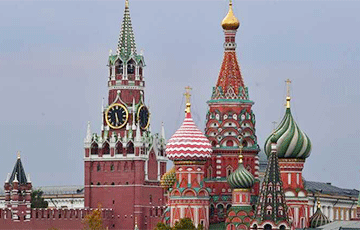Kremlin Has New Dangerous Enemy
7- KSENIYA KIRILLOVA, " CRIMEA REALII".
- 13.12.2023, 12:59
- 27,764

This time among the Russian military.
There are more and more reports of violence used against servicemen in Russia. This includes show punishments of those who refuse to fight, "meat storms", and attempts to send wounded soldiers to the front line. However, brutality against people who are used to killing and skilled with weapons can backfire on the authorities, the Jamestown Foundation writes.
The Kremlin is not daring to announce a second wave of mobilisation, but continues to send more and more recruits to the front. Independent media report that they organise real man-hunt for conscripts in Russia. In violation of the law, even students are being taken into the army, regardless of the certificates they present about having their studies or being unfit for service. At the same time, recruits often have no opportunity to challenge the summons - they are sent to the front within one day, which is also illegal.
Another innovation is the change in the procedure for medical examinations during recruitment and "taking into account the experience of the military operation". The Russian Ministry of Defence said that it intends to exclude from the list the diseases that "do not significantly affect the ability to perform the duties of military service". The exact list of exceptions is not publicly available, but the media are already reporting that recently even soldiers severely crippled by war have been recognised as fit to serve, and so-called "disabled" regiments have been created from them. According to relatives of soldiers, Russian mobilised soldiers who were sent to the so-called "recovery regiments" after wounds and illnesses are being returned to the front in assault units without undergoing a military medical commission and without qualified medical care.
The next reason for the military's discontent was the so-called "meat assaults", when soldiers are recklessly thrown into the attack without considering casualties. According to relatives of the soldiers, this is exactly what is happening near Avdiivka, a settlement in Donbass which the Russian command has ordered to capture before Putin's press conference. As a result, the military relatives have written a collective complaint to the president, pointing out that the mobilised soldiers have been living in trenches on the front line for more than ten months and are constantly under fire. After the active phase of the offensive began in November, the command issued an order on sending servicemen with moderate injuries to the assault units. At that, most of the servicemen have not been on leave since the mobilisation began.
Those who do not agree to take part in the attack are subjected to particularly brutal methods of reprisals. In early December, Russian army soldier Gennady Kiskorov, who refused to return to the front line after being wounded, was kept tied to a tree for two days in the cold and rain by his unit leaders. According to his brother, Semyon Kiskorov, after two days of torture, Gennady agreed to go on a mission.
Another way of dealing with those who "refused" and the "deserters" is to put them in pits for 2-3 days. Sometimes these pits are dug right on the line of contact, under enemy fire. According to the military themselves, some units created a kind of informal "military police" - soldiers close to their commanders who beat and punish their fellow soldiers.
Indeed, hazing, i.e. the abuse of younger conscripts by "experienced" soldiers, had existed in the Russian army before. However, it did not create a clear division of the military into two camps of "executioners and victims" due to a kind of "rotation": yesterday's new recruits eventually became "old-timers" themselves and received the right to abuse newcomers. In this case, however, there is no such mechanism, and the division in the army is much more rigid: some military men forcefully send others to die.
Already today, there are periodic cases of Russian soldiers shooting their commanders at point-blank range even for bad jokes. It is quite possible to assume that sooner or later the latter will decide to fight back not only against their commanders, but also against those who are to blame for sending them to war.
In parallel with the split in the army, the discontent of relatives of the mobilised is growing. Some of them, for example, have to search for the bodies of the dead themselves for months without any help from the state. Despite the authorities' efforts to suppress the protests of the wives of mobilised soldiers "at any cost", they do not reduce their activity, and recently recorded a video message to Vladimir Putin in the "Way Home" Telegram channel. The relatives of the soldiers speak in favour of their full demobilisation, calling the current indefinite service "legalised slavery".
It is telling that, despite constant attempts to discredit the movement of mobilised wives and declare them "agents of Navalny", the majority of Russian society seems to be sympathetic to them. For example, interviews with these women are published not only by the opposition but also by quite official Russian media. For example, the popular Chelyabinsk portal of 74.ru quite honestly describes all the problems of the families of the mobilised and the absolute deafness of the authorities to these problems.
So far, all this discontent, as already noted, has not taken the form of a mass protest. A serious deterrent here is not only repression, but also the war, which constantly forces society to consolidate against the "common enemy". However, as the fighting decreases, the problems caused by the war and new "fault lines" in Russian society will become more frequent.
Kseniya Kirillova, Crimea.Realii










